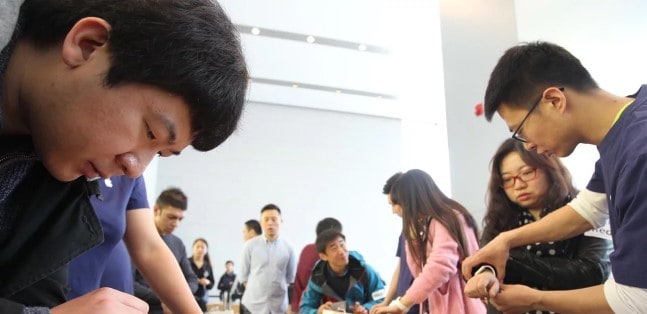
US President Donald Trump’s trade war has little chance of reversing China’s economic and political model. But it could stimulate China’s hardliners to reinforce state controls and social constraints.
As a result, China’s nascent middle class will bear the brunt.
If the trade war is a competition about which side can withstand more misery, China holds at least one crucial advantage. As its propaganda puts it, China can outlast the US in a trade war because its people “are willing to bear losses in their personal life and share hardship with the state”.
But China’s middle class, namely urban white-collar workers and private business owners, may not be as patriotic as the government hoped. They generally own property and other assets, so they value private property rights and the market economy; they are often fans of the iPhone, Google and Hollywood, with aspirations for Western lifestyles; they are those people complaining about Beijing on the Weibo account of the US embassy with regard to China’s stock market fall and air pollution.
Their endorsement of the free market and individualism are closer to the core values of the US than the collectivism and nationalism dogma of China’s propaganda department, which calls on people to surrender individual interests and rights for the sake of a powerful state and an upcoming “national rejuvenation”.
In fact, many of China’s middle class even welcome the trade war as a necessary external pressure on Beijing to change its increasingly heavy-handed interventionist approach to the economy.
The prospects of this class – a group ranging from 100 million to 300 million people, according to different estimates and standards – are, however, not bright.
For the Chinese government, which is confident in the country’s state-led model, it is not an entirely bad idea to sacrifice middle-class interests in an escalating trade war with the US. Stricter state control over information, wealth and economic activities will help Beijing to manage impacts from the trade war, while a hardline approach can also help to suppress complaints at home.
In reality, China is becoming more aggressive in collecting taxes and pursuing a “big government” model, in contrast to Trump’s tax cuts and “small government” approach.
For instance, many Chinese have started businesses online and earned good money because online commerce, up to now, has been relatively free from the red tape and heavy taxes of the “real economy”. But China passed a new e-commerce law this week, paving the way for the government to collect taxes and impose administrative requirements on online shops, just as for bricks-and-mortar merchants.
In another change, China’s mandatory social welfare contributions will from next year be collected by the tax authorities instead of social security bureaus. This change is expected to translate into a steep rise in business costs, dealing a heavy blow to small businesses.
These additional levies will come at a time when the Chinese private sector is already struggling with an economic slowdown and a weakening spending power of consumers.
For Beijing, though, more needs to be squeezed from the private sector so that the state has the firepower to accelerate spending on infrastructure and investments of state-owned enterprises – a strategy to counterbalance the impact of the trade war.
Beijing’s approach is the opposite to that of Trump, who is in the White House because he promised to help the working class. For Trump, a trade war with China is a strategic choice to fulfil his promises of bringing jobs back to the US and making America great again.
China responded to the trade war by enlarging the state’s role in the economy. In the view of Beijing, the interests of China’s middle class, who have no real say in the country’s state affairs, are certainly not a priority. The foremost aim is to protect China’s political model and state-controlled economy.
The trade war may even offer a chance for hardliners within the Chinese government to “clean up” liberal thoughts that have become more popular among the middle class in recent years.
It has been 40 years since the beginning of reform and opening up in 1978, and China now stands at a crossroads again. The trade war is pushing Beijing to sacrifice the middle class to return to a more conservative country. Trump may win the trade war, but he will fail to change the Chinese model, and ultimately the situation of China’s middle class will worsen.